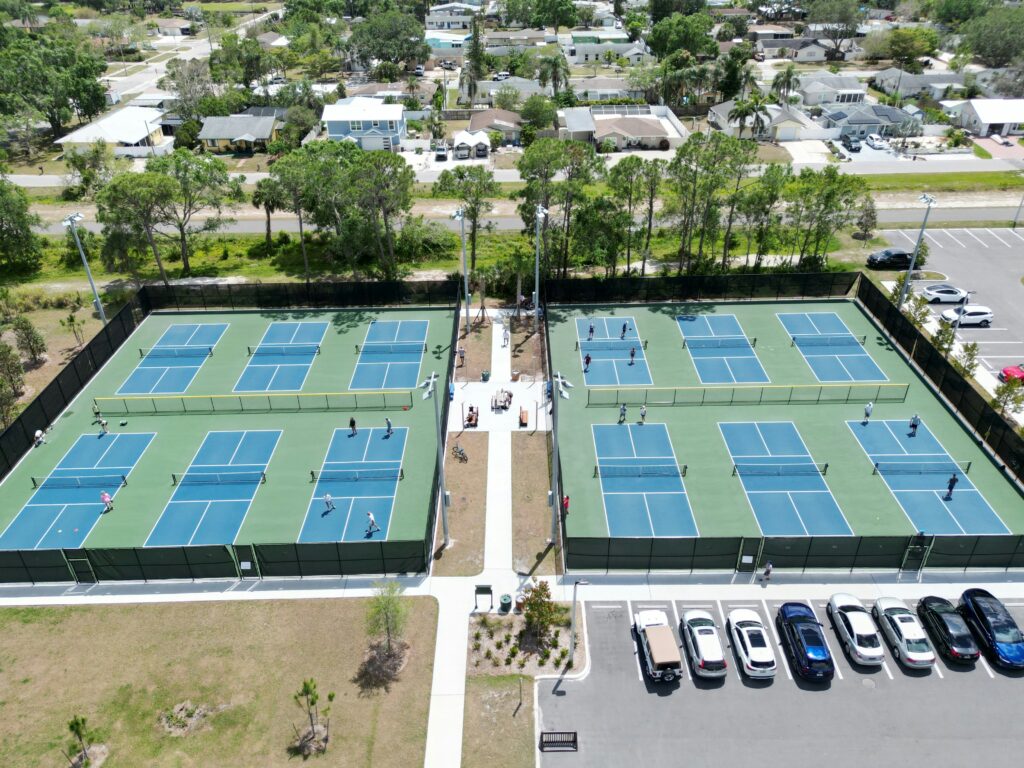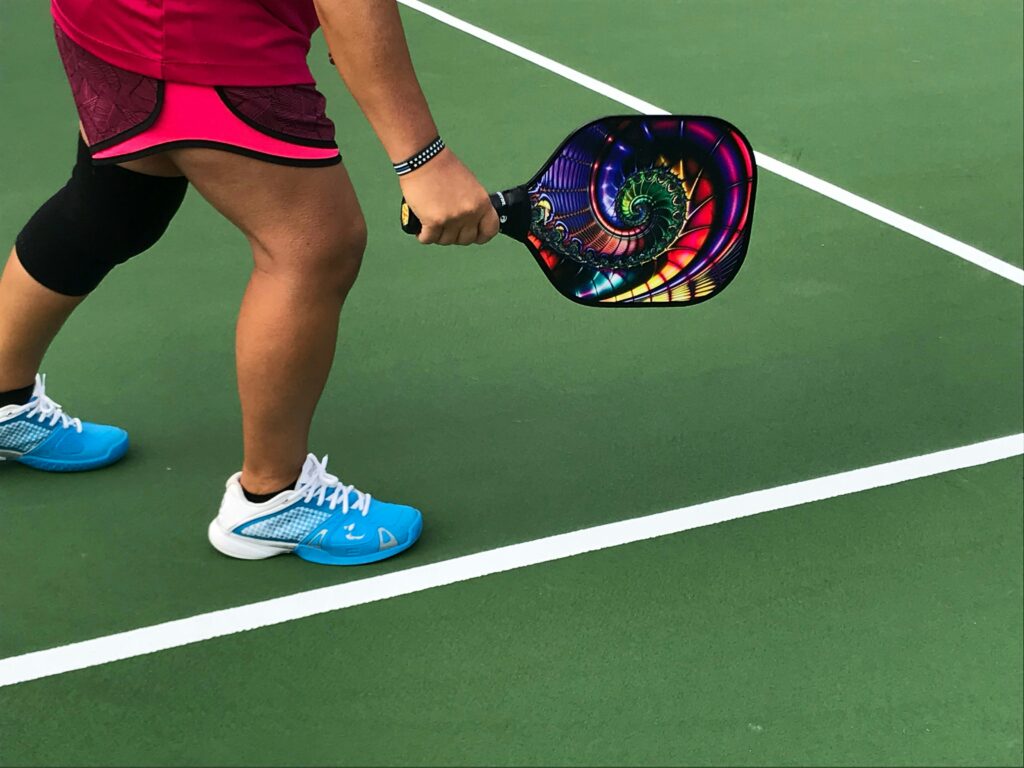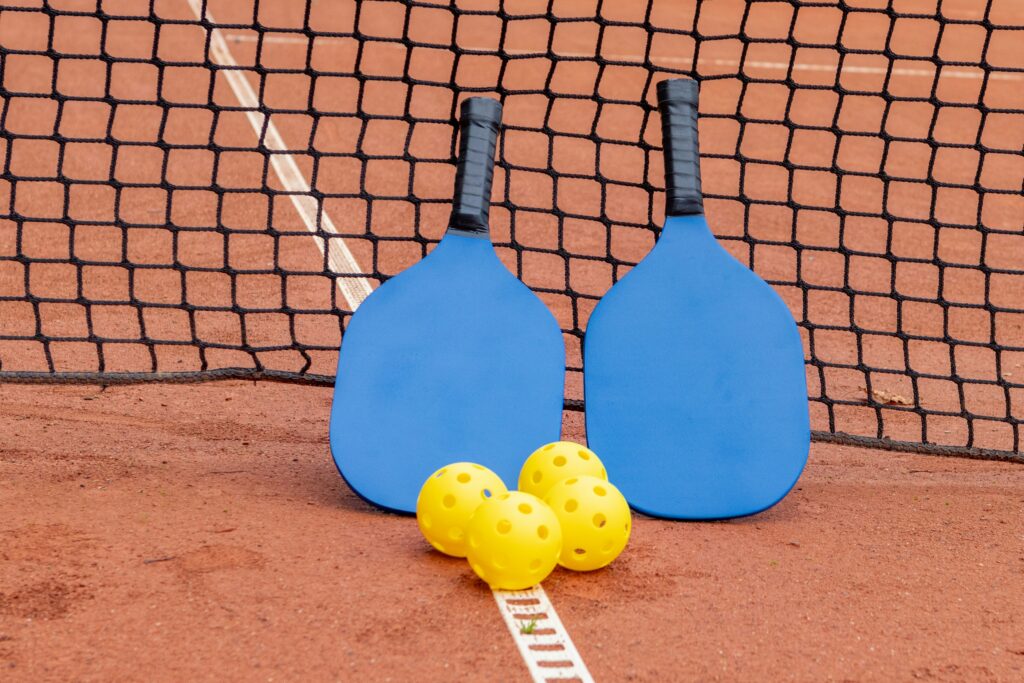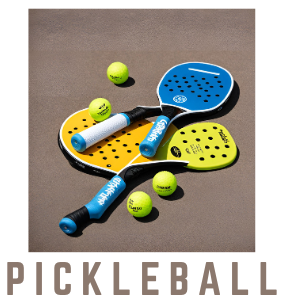Are you curious about the origins of the widely popular sport known as Pickleball? This captivating article will take you on a journey through time to uncover the roots of this beloved game. From its humble beginnings on a small island to its global presence today, discover the fascinating story behind Pickleball’s origin and the remarkable journey it has taken to become the beloved sport it is today. Get ready to be transported into the fascinating world of Pickleball’s history!

Early History
Pickleball’s Inception
The sport of pickleball originated in the summer of 1965 on Bainbridge Island, Washington, USA. It all started when three friends, Joel Pritchard, Bill Bell, and Barney McCallum, were looking for a new game to entertain their families. As they gathered in Pritchard’s backyard, they improvised a game that combined elements of badminton, table tennis, and tennis. They lowered the badminton net and used ping pong paddles and a perforated plastic ball. Little did they know that this casual afternoon activity would be the beginning of a rapidly growing sport.
Origins of the Name
As the game progressed, the group’s dog, named Pickles, would continually run off with the ball, creating a lot of pickle-like situations. The Pritchards’ family had previously raised Pickles, hence the name. This amusing occurrence led the friends to jokingly refer to their new game as “pickleball.” The name stuck, and the sport became officially known as pickleball.
Development and Spread of the Game
Introduction to Other Sports
Following its inception, pickleball quickly gained popularity among friends and family in the Bainbridge Island community. It was an exciting and engaging game that allowed individuals of all ages and skill levels to participate. As word of the game spread, people from neighboring communities started showing interest. This led to the sport being introduced to nearby YMCAs and recreational centers, where it began to reach a wider audience.
First Organized Pickleball Game
In 1967, just two years after its inception, the first organized pickleball game was played. Joel Pritchard and Bill Bell approached the engineer of a nearby naval installation, Robert O. Brown, to design a manufacturing system for pickleball paddles. With the introduction of standardized paddles, the game became more accessible and gained greater appeal to a wider audience. The first official pickleball court was built on the Pritchard’s property, marking a pivotal moment in the growth and development of the sport.
Creation of Official Rules
As pickleball continued to gain traction, there was a need for official rules to ensure consistency and fair play. Barney McCallum, one of the sport’s co-founders, took charge of developing a set of rules. In collaboration with Joel Pritchard and Bob O. Brown, they finalized the first official rulebook in 1972. The rules were designed to be simple and easy to understand, making pickleball accessible to players of all ages and skill levels, which contributed to its widespread popularity.
Growth in Popularity
Throughout the 1970s and 1980s, pickleball continued to grow in popularity across the United States. New courts were constructed, and the sport was introduced to schools, community centers, and retirement communities. The sport’s accessibility, low equipment cost, and emphasis on fun and social interaction attracted a diverse range of players. Pickleball associations began to form, and tournaments were organized, fueling the sport’s rapid expansion.
Pickleball Association and Tournaments
Founding of the USAPA
In 1984, the United States of America Pickleball Association (USAPA) was established as the national governing body for pickleball in the United States. The USAPA took on the responsibility of promoting the sport, developing standardized rules, and organizing tournaments. This marked a significant milestone in the institutionalization and growth of pickleball, providing a platform for players of all levels to compete and connect with fellow enthusiasts.
National and International Tournaments
As pickleball gained recognition and popularity, national and international tournaments emerged as a way to showcase the talent and skill of players. The first national tournament took place in 1986 in Arizona, attracting players from across the country. Over the years, the USAPA National Championships became an annual event, drawing competitors from all fifty states. Internationally, countries such as Canada, Spain, and Australia have also established their own national championships, further expanding the global presence of the sport.
Different Theories on Origin
Joan Pritchard Theory
Joan Pritchard, wife of Joel Pritchard, has her own theory about the origin of pickleball. According to her, the game was born out of a desire to keep their children active and entertained during the summer vacation. She recalls how they used to play an improvised game in their backyard, hitting a ball over the net with ping pong paddles. While this theory does not negate the contributions of the other founders, it provides insight into the family’s involvement in the sport’s development.
Barney McCallum Theory
Barney McCallum, one of the co-founders of pickleball, has his own perspective on the game’s origin. He believes that the three friends were simply looking for a fun and engaging game to play with their families, combining elements from different sports they enjoyed. McCallum emphasizes the collaborative effort in creating pickleball, as each founder brought their unique experiences and ideas to the game.
Congressman Joel Pritchard Theory
Congressman Joel Pritchard, another co-founder, often referred to as the “Father of Pickleball,” envisioned a game that would engage people of all ages while promoting friendly competition and physical activity. His theory focuses on the intention behind the creation of pickleball, highlighting the importance of inclusivity and community building that the sport embodies.

Contributors to Pickleball’s Development
Barney McCallum
Barney McCallum played a significant role in the development of pickleball. His passion for sports and innovation, combined with his experiences in other sports, such as handball and tennis, influenced the rules and gameplay of pickleball. McCallum’s dedication to promoting the sport, both within the community and nationally, contributed to its growth and popularity.
Joel Pritchard
Joel Pritchard, a former congressman, was instrumental in the early stages of pickleball’s development. Alongside his friends, he played a vital role in creating the game and designing the first pickleball court. Pritchard’s vision of a sport that could bring people together and provide enjoyment for all ages laid the foundation for pickleball’s inclusive and community-driven ethos.
Bill Bell
Bill Bell, one of the co-founders, contributed his athletic background and love for competitive sports to the development of pickleball. His expertise in badminton and tennis helped shape the rules and strategies of the game, ensuring that pickleball would provide an engaging experience for players at all skill levels.
Robert O. Brown
Robert O. Brown, an engineer, was responsible for designing and manufacturing the first standardized pickleball paddles. By creating paddles that met the specific requirements of the game, Brown ensured consistency and fair play. His contribution allowed the sport to become more accessible and professional, further contributing to its growth and development.
Equipment and Court Specifications
Pickleball Paddles
Pickleball paddles are an essential part of the game. Early on, players used ping pong paddles, but as the sport evolved, specialized pickleball paddles were developed to optimize performance. Today, these paddles are typically made from lightweight materials such as graphite or composite materials to enhance maneuverability and control. Paddle sizes and designs vary, allowing players to choose one that suits their style and skill level.
Pickleball Balls
Pickleballs are unique and distinctive from other types of balls used in various racquet sports. They are made of a durable plastic material, with small holes covering the surface. These holes reduce wind resistance and create a unique flight pattern when struck, adding an extra element of excitement to the game. Pickleballs are available in various colors, which can help differentiate between indoor and outdoor play.
Pickleball Court Dimensions
A pickleball court is approximately one-third the size of a tennis court. The dimensions of a standard pickleball court are 20 feet wide and 44 feet long, with a non-volley zone (commonly known as the “kitchen”) extending seven feet from the net on either side. The compact size of the court allows for quick movement and strategic gameplay, creating an engaging and fast-paced experience for players.

Pickleball’s Global Popularity
Introduction to Other Countries
Although pickleball was born in the United States, its popularity has spread rapidly to other countries. Pickleball associations and clubs have emerged around the world, introducing people from different cultures to the exciting world of pickleball. Countries such as Canada, Australia, Spain, and the United Kingdom have embraced the sport and have significant pickleball communities that continue to grow.
Growth and Expansion Worldwide
The global popularity of pickleball continues to surge as more countries recognize its accessibility and inclusive nature. Pickleball is appealing to various demographics, including older adults seeking recreational activity, families looking for fun outdoor experiences, and competitive athletes seeking a dynamic and challenging sport. The sport’s adaptability to different settings, such as indoor gyms, outdoor courts, and even modified versions for wheelchair users, has contributed to its rapid expansion worldwide.
Pickleball in the Olympics
Recognition by the International Olympic Committee
Although pickleball is not currently an Olympic sport, efforts have been made to gain recognition from the International Olympic Committee (IOC). The USAPA, alongside other national pickleball organizations, has been actively working towards achieving Olympic status. The sport’s growing global presence and popularity among athletes and recreational players alike have raised hopes of eventual inclusion in the Olympic Games.
Future Prospects
If pickleball continues to experience the same growth and enthusiasm worldwide, there is a strong possibility that it will one day become an Olympic sport. The inclusive nature of pickleball, its adaptability to different skill levels, and the sense of camaraderie it fosters align with the values and goals of the Olympic movement. With dedicated athletes, passionate organizers, and a growing global community, the future of pickleball in the Olympics looks promising.
Conclusion
From its humble beginnings on Bainbridge Island, Washington, to its global presence today, pickleball has come a long way. The sport’s inception was marked by the creativity and collaboration of Joel Pritchard, Bill Bell, and Barney McCallum, who combined elements from various sports to create a new and exciting game. Thanks to their vision and determination, pickleball grew in popularity, resulting in the establishment of the USAPA, the organization of national and international tournaments, and the expansion of the sport worldwide.
Pickleball’s inclusive nature, accessibility, and emphasis on fun have attracted players from diverse backgrounds and age groups. Its adaptation to different environments and ability to accommodate players of various skill levels have contributed to its rapid growth and global appeal. As pickleball continues to gain recognition and popularity, the dream of seeing it become an Olympic sport may one day become a reality. With its bright future ahead, pickleball promises to bring joy, competition, and camaraderie to players around the world.

